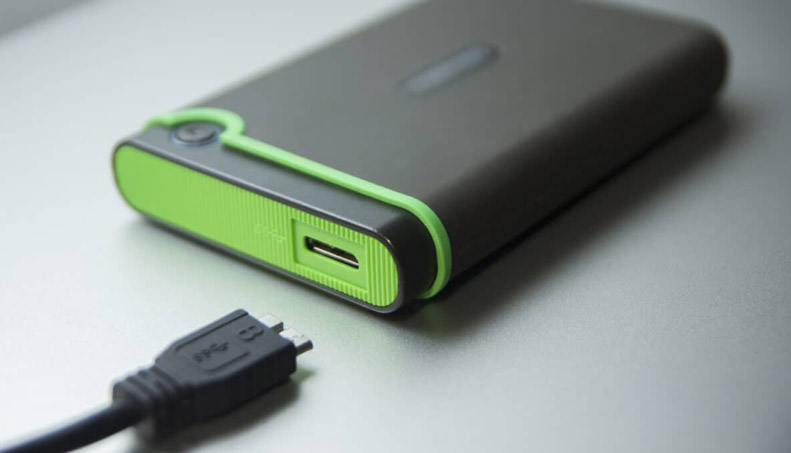Data Recovery Services
- Hard Drive Data Recovery
- RAID Data Recovery
- NAS Storage Data Recovery
- SAN Storage Data Recovery
- Desktop Data Recovery
- Laptop Data Recovery
- Mac and iOS Data Recovery
- SSD Data Recovery
- On-site Server Data Recovery
- External Hard Drive Data Recovery
- Pen Drive Data Recovery
- SD Card Data Recovery
- Ransomware Recovery
- CCTV/DVR Data Recovery
- Server Data Recovery

Dependable External Drive Data Recovery Services
In today’s digital age, we rely on electronic devices to store and access important data. Whether it’s personal documents or business files, the security and safety of our data is of utmost importance. This is where an external or USB hard disk drive comes in handy. It serves as a portable and convenient secondary storage option with the capacity to hold large amounts of data. With its external port, which is often connected via USB, it can easily be connected to other devices such as computers.
However, despite the convenience and reliability offered by external hard drives, it is not immune to errors, problems, and malfunctions. When such errors and corruptions occur, it is important to seek the services of qualified technicians who have the knowledge and expertise to perform data recovery services.
Fortunately, HelpDisk Data Recovery has a team of qualified engineers who are dedicated to providing efficient and effective data recovery services to ensure the safety and security of your valuable data.
- Recover deleted, formatted, damaged, crashed External Drive Files
- 1000+ file types recovery – Photo, Video, Audio, RAR, and more
- 100% Data Recovery from 2.5 and 3.5 inch External Hard Drive
- Certified and Advance Data Recovery Lab
- Quick, easy, and 100% guaranteed data privacy
The Difference Between a Hard Drive and an External Hard Drive
External hard drives have become the go-to solution for many users who need to transfer and store their data. The connection to the computer via a USB is a significant advantage over traditional internal drives, making them an excellent choice for portable and on-the-go use. However, this convenience comes with an inherent risk. Due to their mobility and consistent use, external hard drives are more susceptible to damage and data loss. Once you start deploying your external drive to various devices and start carrying it around, the chances of damage increases manifold. Thankfully, many manufacturers employ encryption measures to protect the data on these drives and ensure data privacy.
In this case, Ontrack’s cutting-edge data recovery tools stand out as a reliable means of retrieving lost or erased data from these specialized external drives. By entrusting your data recovery needs to Ontrack, you can rest assured that your data and other important files are in safe hands, no matter the complexity or severity of the damage.
What causes data loss?
Determining the cause of data loss is always the first step in a successful recovery process.
This is because the cause (even more than the symptoms) will help you and any experts you speak with to identify the course of action that:
- Is most likely to be successful
- Will get the largest volume of lost data back (or the most valuable data)
- Is most time-efficient for you or your provider
- Is most cost-efficient for you
Aside from accidental deletion, which is pretty self-explanatory (and often straightforward to rectify), file corruption is one of the most common and relatable issues.
This happens when the data within a file or storage device is altered from its original state. That forces it to either behave differently (for example, an image file might suffer from reduced quality or missing pixels) or become completely inaccessible. We count both as data loss.
Common causes of hard drive corruption
Corruption happens for a number of reasons.
Age
Corruption is more likely to happen on an older hard drive. This is because the data within it degrades over time to the point where files become unreadable. This kind of degradation can happen during operation or even on a storage device that is rarely used.
Malware/viruses
Despite what you might read in ransomware emails, viruses cannot physically damage your storage device. However, they can damage the data within your storage device enough to make it unreadable.
Interruption during writing
Anything that disrupts the writing process (copying files, saving document changes etc.) can cause data to become incomplete, making it inaccessible or compromised. Common examples of causes include:
- A sudden loss of power (hence why most operating systems ask you not to power off when installing or updating a program)
- Impact damage from a drop, even a small one
- Extreme temperatures (both hot and cold)
- Unplugging a drive while it is in the process of writing data
1. Check physical connections. It sounds obvious but we’ve all missed it before; check the lead is in properly and try another cable (even if you have to buy or borrow one).
2. Use another computer. This will help you determine whether the issue is in your computer or your hard drive.
3. Update your operating system. If the drive works on another computer, go back to yours and make sure your operating system is fully updated.
4. Update your drivers. Not all storage devices are plug-and-play; you may need to update your drivers so that your computer can communicate properly with your storage device.
If none of this works, or you know for sure that your device is damaged or corrupted (if it’s clicking, for example) turn the power to the device off to prevent any further damage. Recovery is based on the completeness of the data and file structure, so keeping it on could cause further issues.
